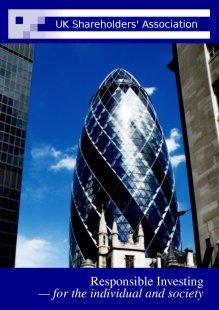When a company gets into financial difficulties, i.e. becomes insolvent, a receiver is usually appointed. This can be done in several ways, but with public companies it is often the company's bankers who have security for their loans who do so. Historically the company was then usually liquidated, i.e. the assets sold off to pay the company's creditors - the sequence of who gets paid first is determined by law, but if any outstanding loans are secured against assets, as they usually are, then the bankers will take precedence over ordinary trade creditors. Preference shareholders, if there are any, will have some priority, but often there is nothing remaining to redeem their shares. Ordinary shareholders will typically get nothing - indeed they are lucky if the receiver or liquidator even tells them what is going on.
However it was recognised a few years ago that it is often more in the interests of creditors if the business is continued in some manner, so that time is given to restructure the company and revitalise it. This can be appropriate for example if a section of the business continues to trade profitably, or the assets are such that a "rescue" or refinancing may be achievable. This is called "Administration" where an administrative receiver is appointed. Unfortunately, ordinary shareholders have gained little benefit from this arrangement. In reality it appears mainly to simply give more time to enable a sale of actively trading parts of the business. If any refinancing is attempted, ordinary shareholders are often so diluted by the issue of new equity, that the original shares become almost worthless.
It is a recurring complaint when receivership occurs that the process is too costly, and the assets of the business often sold too cheaply. Liquidators fees often take a very substantial portion of the realised cash, and the process of liquidation can take years.
UKSA believes that the arrangement of these affairs in the UK is not as satisfactory as in some other countries (such as under the US "Chapter 11" procedure). Viable businesses that could easily be resuscitated, thus protecting the interests of employees, suppliers, customers and shareholders, are too often simply wound up.
One particularly disturbing recent trend is the growing use of "pre-pack administrations", where arrangements for the sale of a business are made before the administrator is formally appointed, and then immediately executed. This is typically a way for companies to escape from their creditors and from their minority shareholders, and enables "phoenix" companies to arise from the ashes, often with the same management and major shareholders. An article written on the cases of Axeon and Torex in May 2009 which were particularly outrageous examples of this genre is here.

